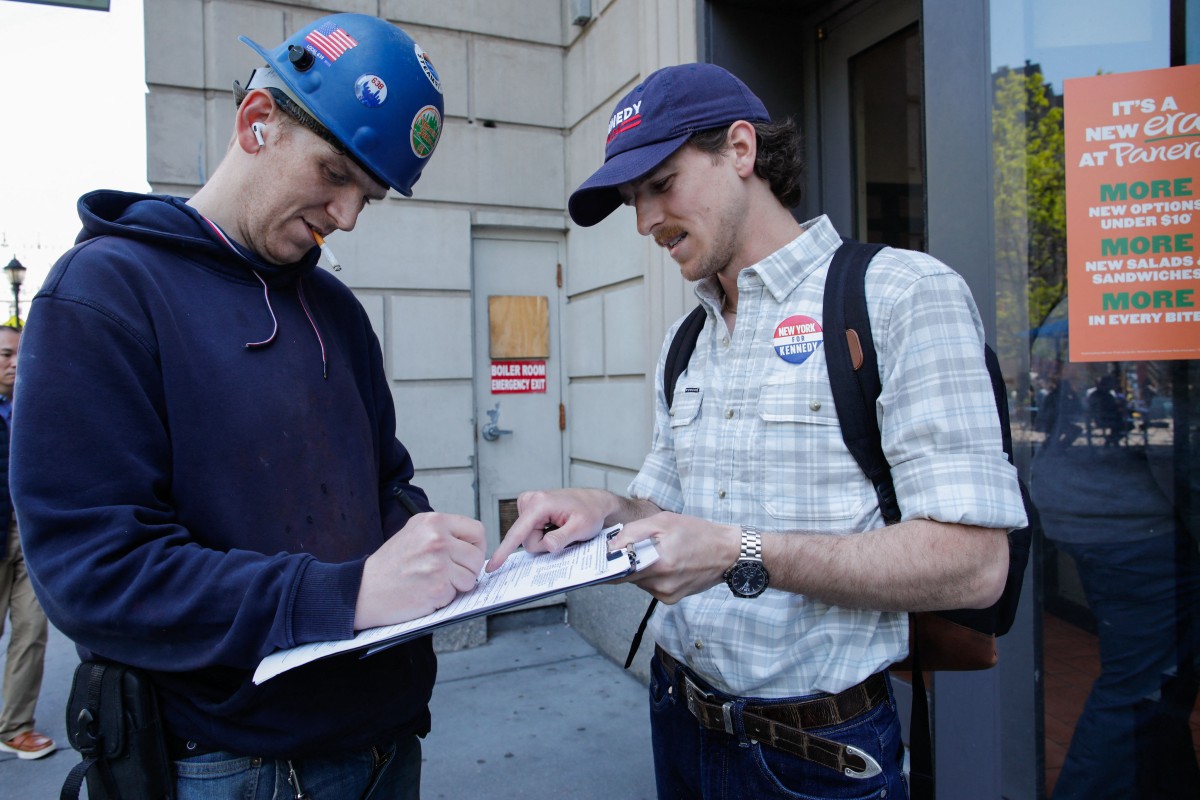
Illegal immigration on the US southern border is a top talking point among Republican politicians, but some are taking it a step further by promoting disinformation about non-citizens voting in the presidential election.
With the election possibly to be decided by several thousand votes in battleground states, social media has filled up with allegations that foreigners are entering the country to swing the poll in favor of President Joe Biden.
AFP has extensively debunked those claims in both English and Spanish, explaining that non-citizens cannot vote in federal elections — and that safeguards such as double verification prevent them from registering to do so.
But former president and Republican candidate Donald Trump recently shared a video on his Truth Social platform that claims Democrats are encouraging migrants to come to the country to sway the contest in favor of the Democratic incumbent.
X owner Elon Musk amplified the clip, gathering hundreds of thousands of additional interactions.
Republican lawmaker Marjorie Taylor Greene has added to the false narrative, warning that Democrats “are going to steal the election with illegal votes.”
“This is why there has been a large number of voter registrations in key states with (Social Security numbers), migrants can get a SSN without citizenship,” she said April 16 on X, formerly Twitter.
“This is why the Biden admin is keeping the border open.”
A study from the nonprofit Brennan Center found votes suspected — but not proven — to have been cast by non-citizens in 2016 represented 0.0001 percent of ballots.
Data reported by the Congressional Research Service show approximately 3.2 million non-immigrant residents living in the United States in 2019.
The nonpartisan government agency also estimates that in 2022, there were up to 11.4 million unauthorized individuals and 12.9 million legal permanent residents in the country.
Even though it is already illegal for those groups to join the roughly 161 million Americans registered to vote in federal elections, Trump and Republican House Speaker Mike Johnson recently floated another law aimed at non-citizens casting ballots.
“We cannot wait for widespread fraud to occur,” Johnson said at a mid-April news conference at Trump’s Mar-a-Lago resort in Florida — historically an election swing state.
“Especially when the threat of fraud is growing with every single illegal immigrant that crosses that border.”
– ‘Exploit anxiety’ –
Experts say misinformation about migrants voting has taken off in part due to a spike in crossings along the US-Mexico border in recent years.
“The most important change is the level of the intensity of the crisis in the border, and how that’s being used to make rumours,” said Mert Bayar of the University of Washington’s Center for an Informed Public.
Ethan Porter, an associate professor of media and public affairs at The George Washington University, added that some politicians may think they “can exploit anxiety and fear” about illegal immigration to mobilize their supporters.
“Voter turnout is hard, and stoking such fears is one way to make it easier,” he said.
False claims about non-citizens affecting the outcome of US elections have surfaced before.
Trump in 2016 partially blamed illegal immigrants for his popular vote loss to Biden. A commission he created to investigate the issue later dissolved without finding cases of non-citizens casting ballots.
What is different this cycle, according to Emerson Brooking of the Atlantic Council’s Digital Forensic Research Lab, is that “the disinformation apparatus has gotten more sophisticated,” making it easier for people to take data out of context and spread persuasive, elaborate falsehoods.
– Preparing for fraud –
Narratives about non-citizens voting set the stage for future allegations of fraud, analysts say.
“Pushing these claims amounts to a ‘tails I win, heads you lose’ approach to elections,” Porter said. “Either my side wins despite the influence of illegal voting, or my side has lost because of illegal voting.”
However, it could also have unintended consequences for Republicans.
“Election fraud rumors and conspiracy theories might actually have a demobilizing effect on people who believe in them because they don’t trust the system, so they don’t want to participate,” Bayar said.
Multiple experts told AFP the real threat of voter fraud disinformation is plummeting confidence in the US electoral system.
Brooking said such narratives are “opportunistic,” adding that if Trump wins in a landslide in November, everyone pushing the claims “will forget them overnight.”
With about six months until Election Day, he said “we’re only seeing the first droplets” of disinformation, warning they will soon “become a tidal wave.”






